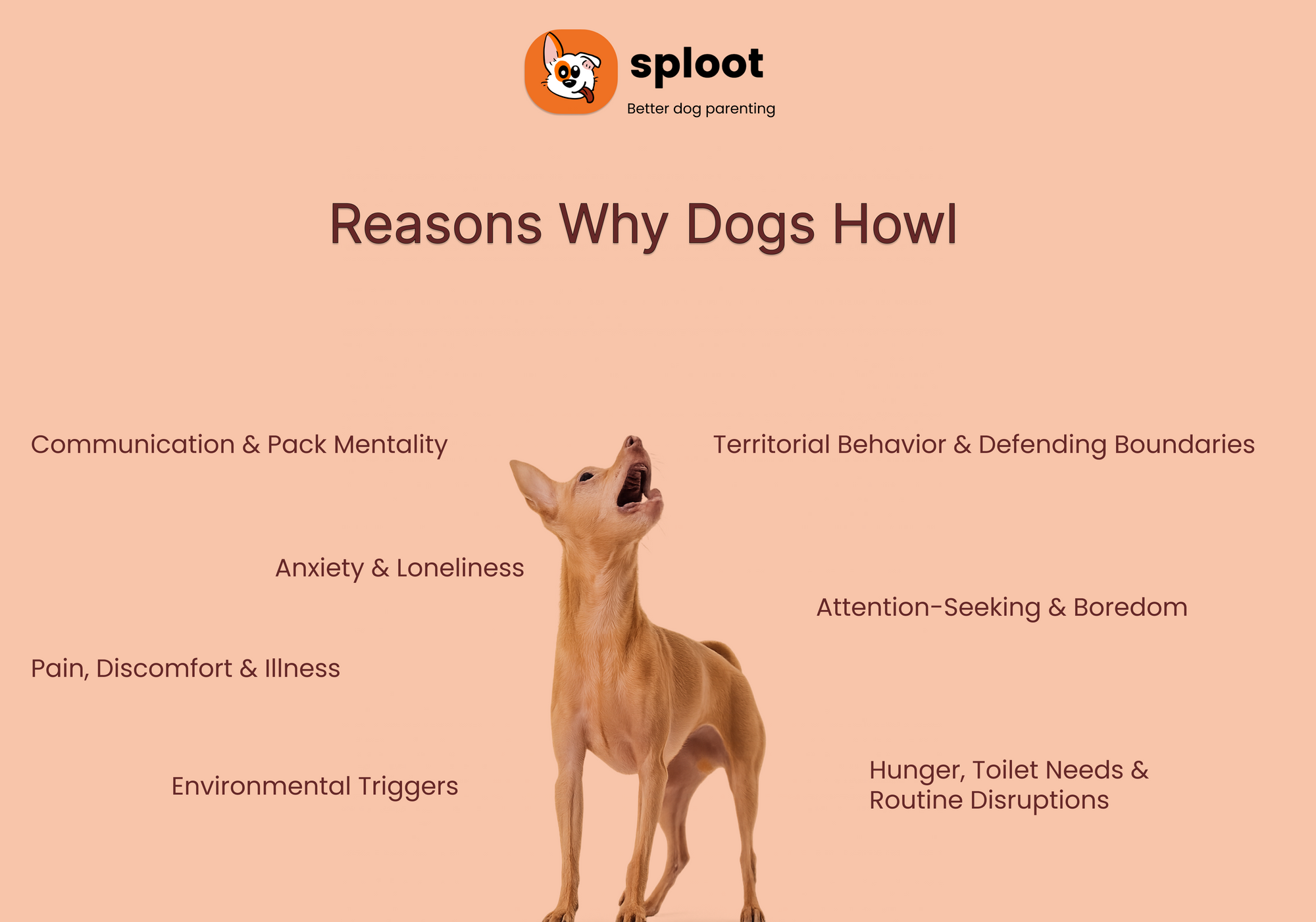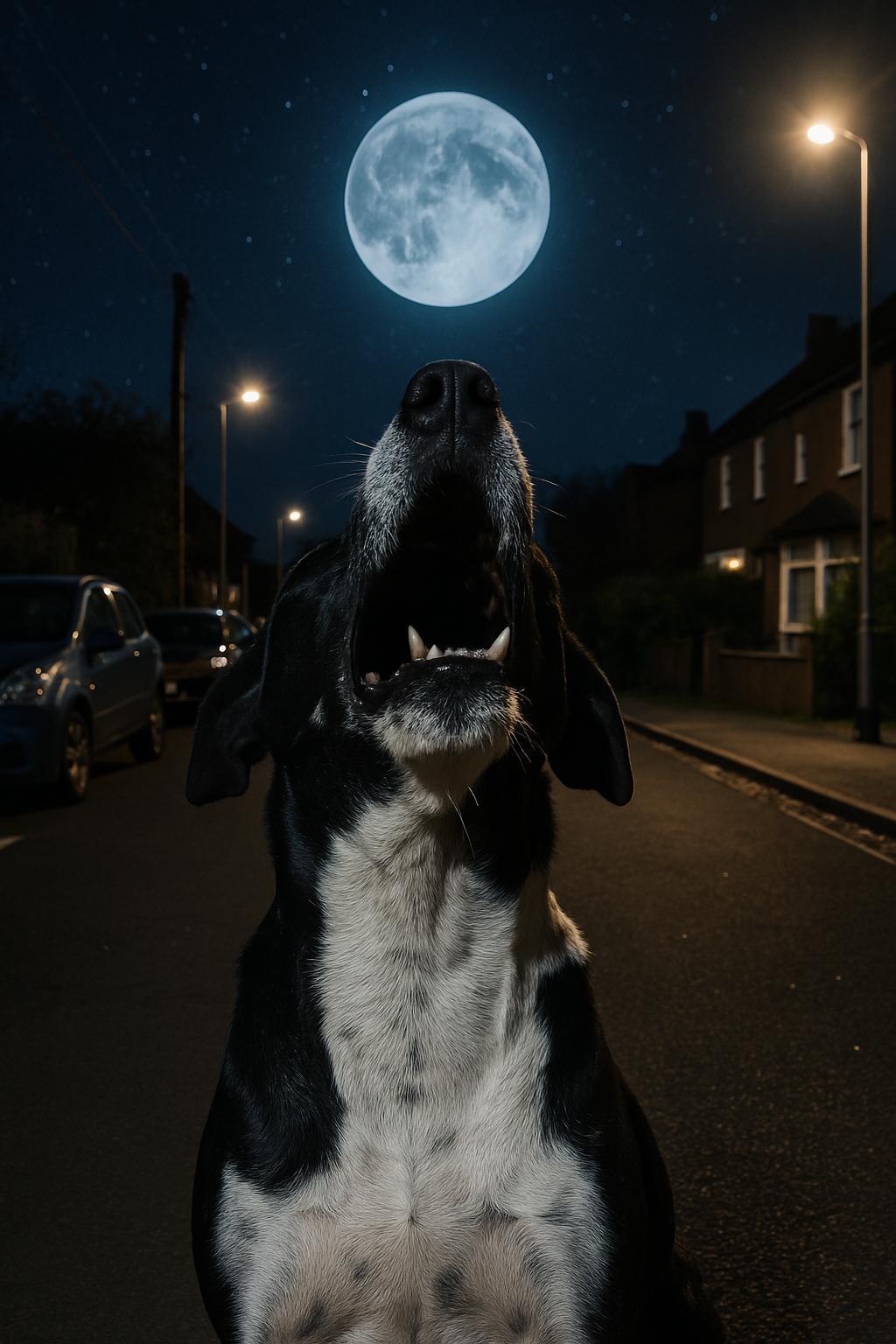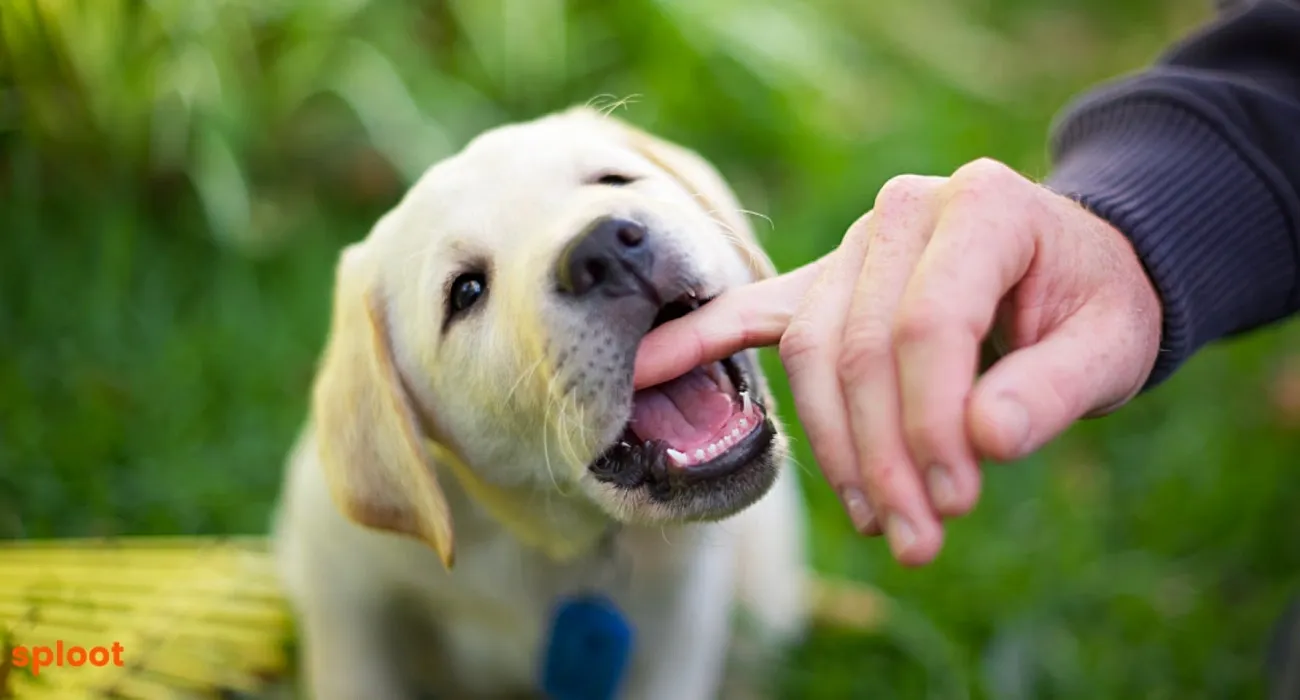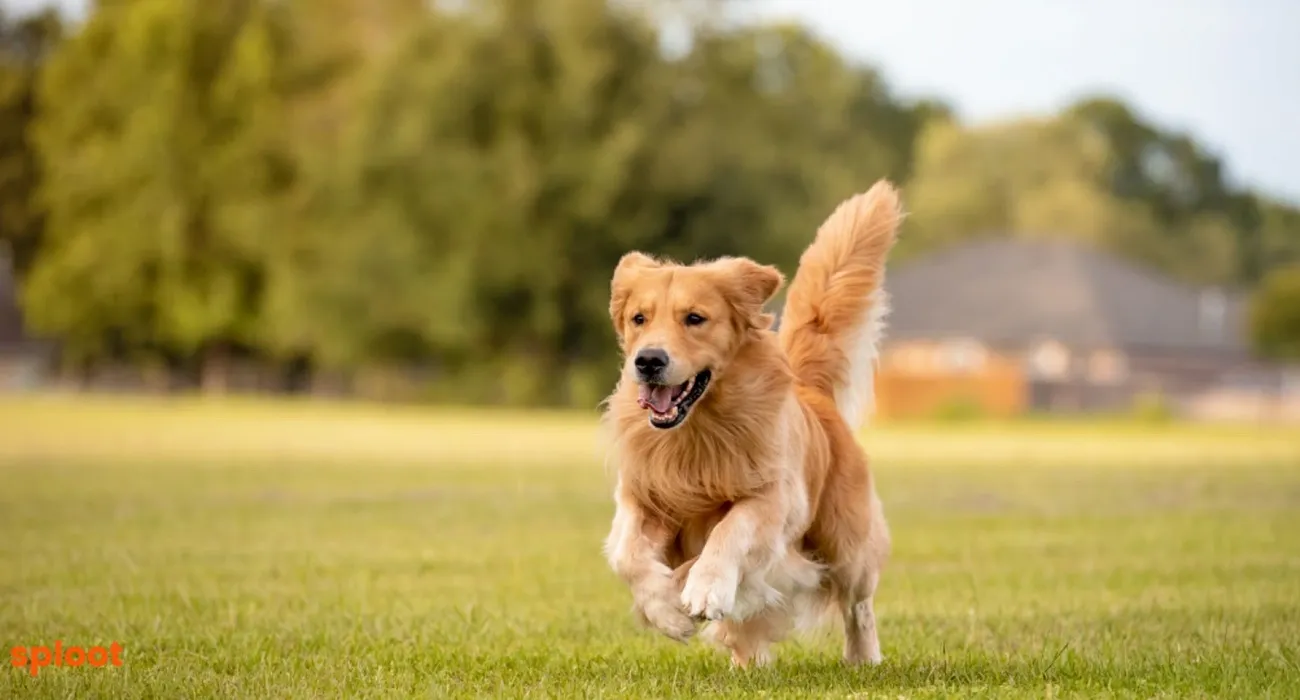You might feel a chill run down your spine when you hear your dog howling out in the middle of the night, while some may just dismiss it as superstition. Perhaps howling at night is simply a way of vocal communication for them. There are numerous reasons why dogs will howl at night, including environmental influences, boredom, and instinctual communication. Therefore, as a pet owner, it's vital to understand what your dog is trying to express with that horrid hooting bark. This article will dwell deeper on the reason behind the night howling by dogs and provide a few hints towards curbing it.
Why Do Dogs Howl at Night?
Howling is a natural form of communication for dogs, a behavior ingrained through genetic relations with wolves. Wolves howl to coordinate hunts, mark territories, or assemble packs. However, due to domestication, dogs have adapted such behavior as a way to express emotions, react to environmental stimuli, and interact with their surroundings. Nighttime howling is different from daytime barking or howling: its purpose and intensity. Such howling is mostly instigated by environmental triggers, like sirens, loud noises, or howling from other dogs.
While at night, howling may continue over a long period of time to express feelings of loneliness and boredom, barking must relate to immediate needs or threats. Domestic dogs will exhibit more howling than street dogs, as these vocalizations express anxiety or excitement, while street dogs howl as a means of survival-asserting territory, summoning to their pack for safety, or cautioning each other of possible threats. Some of the reasons domestic dogs howl are far apart from those of street dogs.
Domesticated breeds howl any time they hear sirens or music, and that could be attributed to instincts carried down from their wolf ancestors. Breeds that are closer to the wolf genetically, like Malamutes and the Huskies, tend to be more vocal and howl more than other breeds. Street dogs howl for their own practical reasons, involving defending territory or knowing what is happening when they quarrel with their pack.
Understanding the Reasons Why Dogs Howl at Night

Communication & Pack Mentality
Howling is a means of communication, typical of social animals like dogs. Stray dogs will do this at night to tell their pack-animal or human-about some danger, establish territory, or perhaps guide separated members back to safety. These are survival mechanisms derived clearly from the life experiences of their ancestors and, at the same time, are ways of strengthening their social bonding.
They may howl in response to a plethora of distant sounds or dogs. At night, stray dogs often howl in groups to alert their pack about potential dangers, mark territory, or guide members back to safety. Mimicking the behaviour of their ancestors, this behavior reinforces social bonds and ensures survival in the wild.
Anxiety & Loneliness
Howling might also indicate emotional distress. For instance, when a pet dog is left alone and experiences separation anxiety, it may howl excessively due to fear or wanting companionship. In the case of free-roaming dogs, howling during the night is performed either out of isolation or because they miss members of their pack. Distressed pet dogs may pace around, destroy things while howling, and show other signs of rest-lessness.
Pain, Discomfort & Illness
You know that a dog is persistently howling when it is expressing physical discomfort or ill health. If your dog has suddenly started howling more than usual, you should check for lethargy, loss of appetite, or any unusual behavior and consult a veterinarian right away.
Environmental Triggers
Dogs have an acute awareness of sounds like sirens, vehicle horns, fireworks, or distant animal calls. These stimuli often elicit a howling response as a reflex action. Thunderstorms may also cause distress with attendant vocalizations at night due to the changes in weather conditions.
Territorial Behaviour & Defending Boundaries
For street dogs, howling is most frequently adopted for the purpose of asserting dominance and defending their territory from intruders. This behavior serves to draw boundaries and gives warnings to outsiders to stay away. Similarly, guard dogs may also howl at night under the instinct of protecting the property.
Attention-Seeking & Boredom
There are different occasions when dogs howl in order to get attention from humans or other dogs. When the need for mental stimulation or physical activity, high-energy breeds are mainly prone to boredom-induced howling. These breeds include a variety of breed types but mainly include Husky or Beagle. Giving ample exercise and engagement will reduce this behavior.
Hunger, Toilet Needs & Routine Disruptions
Some dogs may howl if they are hungry or need to relieve themselves during the night. Stray dogs often howl to alert their pack about food sources. Disruptions in their sleep cycle or routine can also trigger vocalizations as they adjust to changes.
.
How to Manage & Reduce Dog Howling at Night
Addressing Anxiety & Emotional Distress
Dogs may howl because of loneliness or anxiety. Try relieving the situation with calming music, white noise machines, or pheromone diffusers. If your dog howls because of separation anxiety, practice leaving the dog alone for short intervals, gradually increasing that time. Reward calm behavior to reinforce independence. Make sure he has a cozy and secure sleeping place as this reduces anxiety.
Managing Environmental Triggers
Soundproofing or white noise machines can be used to block out external sounds that may trigger howling such as sirens or other things with shrill noises. For street dogs or those that have had past experiences with external stimuli, it becomes extremely important to ensure that they have safe perimeters in order to limit any possible triggers to howling. These include any unfamiliar animals or loud activities.
Meeting Basic Needs (Food, Exercise, Toilet Breaks)
Provide ample exercise daily to stop the dog from howling at night. Feed him at proper times to take care of food-driven howling at night. Take him out to relieve himself before going to bed, so he doesn't howl in discomfort.
When to Seek Veterinary or Behavioural Help
If such behavior sticks despite all interventions, consult a veterinarian to rule out medical conditions or a professional dog trainer for behavior modification techniques. Often, howling is caused by pain or discomfort, and a veterinary check-up should be done if that's the case.
Why Do Dogs Howl at Night?: FAQs
Why do street dogs howl at night?
Street dogs can howl to communicate with their pack, claim some territory, or curtail their focus on environmental stimuli like other dogs or loud noises.
Why do dogs howl at night together?
Dogs howl together because it is an important social bonding experience, to proclaim themselves to an area, or to respond to other triggers such as sirens and other howls.
Is it necessary to respond to my dog howling at night?
It depends on the cause: when anxiety or unmet needs are behind the howling, you could step in. However, refrain from giving in to attention-seeking behavior by responding if not needed.
What does dog howling signify in spiritual beliefs?
In many cultures, dog howling is considered either a gateway to spirits or ancestors and symbolizes protection, guidance, or just an alert to energies that are unseen.
What does it mean when you hear dogs howling at night?
When dogs howl at night, it is usually a form of communication with other dogs, an assertion of territory, or an expression provoked by factors in the environment.
Do Dogs Howl in Their Sleep?
Different sleeping dreams result in howling in their sleep; however, wakeful vocalization may cause more concern. Unconscious howling is often harmless; it is a good thing









